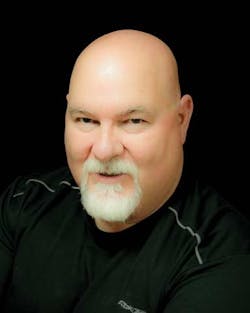Selling is a contact sport
At a very young age, I could tell the difference between a ’55, ’56 and ’57 Chevy. Later, I could tell the difference between a ’61, ’62 and ’63 Chevy Impala, which was considerably more difficult.
I’ve loved cars since I was very young. So when I needed a job while attending high school, I applied at Paramount Chevrolet in Downey, Calif. At the time, they were the greatest volume Chevy dealership in the area and employed a large number of salesmen, and I made friends with most of them. I often received tips for helping them resolve minor customer complaints and handle favors, like free car washes.
One of the veteran salesmen at the time was a big tipper, better than the rest, and he sold more cars than the rest. The most valuable tips were not in cash; he also gave me tips about selling.
What is a lot lizard?
I’ll never forget the first time I heard him use the term “lot lizard,” a term used in the car-dealer business for customers who hang around the car lot kicking tires, but never buying. He, however, used the term to describe lazy and unprofessional salesmen.
He was never worried about losing his job when it came to layoffs; he was a professional and he knew it. He told me management would cut some of the lot lizards long before they would lay him off.
His business card was different than everyone else’s; his card had a gold seal on it that signified he was a sales leader. He was proud of his business card.
He shared a few tips with me that I will now share with you:
• Lot lizards are a dime a dozen.
• Good salesmen are always selling.
• Business cards are for handing out.
• When you’re at work, work.
• Stay in touch with your customers.
• Think referral, referral, referral.
He would say that lot lizards were never around long enough to establish a clientele, “They come, they go, and nobody takes ‘em seriously, not the customers, not other salesmen, not management, and usually they don’t take themselves very seriously.”
When I was talking to him, he was selling me. He was always selling, “Does your neighbor need a car? Any of your teachers need a car? Here, take a few of my business cards, and I’ll share my commission with you.” He was enthusiastic. I wanted somehow to be a part of his success.
Lot lizards were always hanging out, smoking cigarettes, flirting with the female receptionists/phone operators (most salespeople were men then), or hanging around the lunch truck. They did not take sales seriously. Selling is serious business; when you’re at work, work.
Take calls and make calls
The showroom of this dealership was small; there was only room for two cars, four small offices and six cubicles. Mr. Professional had the cubicle closest to the showroom entrance where customers walked in. He was always prepared. Another thing that really stuck out, if he wasn’t talking to a customer, he was on the phone. He fielded more incoming calls than anybody because he was always at his desk, ready to take calls and make calls. He spent more time on the phone than the operator. He made outgoing calls to his customers, especially his fleet customers. He was on the phone when he wasn’t face-to-face with a customer. He stayed in touch.
He was constantly asking for referrals. I felt guilty that I had only brought him one customer. Word-of-mouth was and is the best form of advertising, and good salesmen who do the little extras deserve to ask for referrals.
My sales friend was a true professional, not because he could sell a lot of cars, but because he could do it month after month, year after year.
I was in sales for years. Sales is a contact sport; it’s work. Sales are personal; each sale is custom, and it’s serious business. So be a professional — set goals, make a plan. Work! ■
10 points for professional salespeople
1. A sales professional has goals.
2. A sales professional has a plan and works the plan.
3. A sales professional self-educates.
4. A sales professional works to maintain a positive attitude.
5. A sales professional always stays in touch, engages and communicates.
6. A sales professional maintains a high level of consistency.
7. A sales professional meets challenges and complaints head-on.
8. A sales professional is an effective communicator.
9. A sales professional has knowledge of the products and competitors.
10. A sales professional understands how to handle objections.
A true professional has mastered these basic skills and has a plan to grow and strengthen areas of weakness.
Wayne Williams is president of ExSell Marketing Inc., a “counter intelligence” firm based in La Habra, Calif. He can be reached at [email protected].
